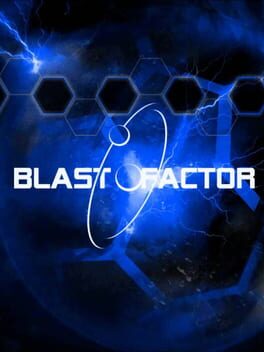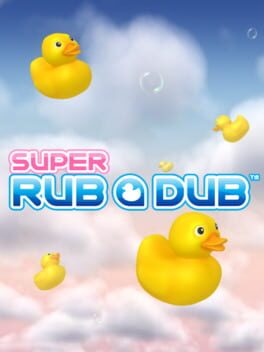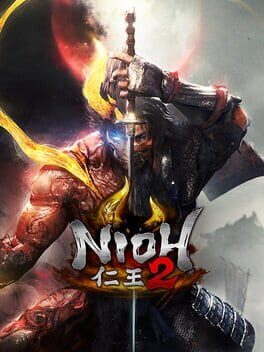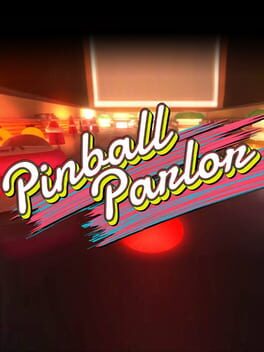MVK
2006
At the time of this writing, PS3's online store was about to get shut down, but after tons of complaints Sony surprisingly caved in, even though it most likely will get shut down anyway sooner rather than later. This made me think to check out (at least some of) the games that are only available on PS3, for personal curiosity and posterity's sake. That was my only real reason to check out Blast Factor, a PS3 launch game that is meant to show off the console's particle effects, the sixaxis motion controls, and the fact that you can now buy videogames digitally. Might seem obvious now, but in 2006 this was a fairly big deal.
Other than being a good showcase for all those things, Blast Factor is actually not half bad as a twin stick shooter either. Its obvious surface-level similarities to Geometry Wars (another launch game, that one on the Xbox 360 instead) will show immediately, but there's nothing wrong in taking something that works and tweaking it a bit. Blast Factor's two tricks are the sixaxis controls and the fact that the main method of destroying enemies aren't specifically your shots as much as the chain explosions that an enemy will create.
Getting it out of the way immediately, obviously the motion controls are very tacky and stick out really badly from the rest of the game. You can slow down time by shaking the controller, which is an action that can be useful but was more of a hindrance because of how sensitive the controls are, leading this action to be triggered by accident more often than not, and you can tilt the field by literally tilting the controller, which is the worst offender. Not only is it a complete pace breaker but there's literally only one enemy that this move will be useful against, which really makes it feel like Sony told the developers to add some motion-based actions at the last second. The mechanic of having to use enemies' blasts to create a chain reaction that can very quickly wipe out entire waves is, instead, pretty fun. It makes the game feel pretty different from most other twin stick shooters as it makes you prioritize enemies based on size and/or positioning, and in general it's a fun gameplay loop.
I wouldn't tell anybody to start up their PS3s and go on PSN specifically for Blast Factor, but next to other purchases this can be a pretty ok time-waster. It offers some extra content, it's pretty easy to just pick up and play, and for the price of $3, you could honestly do a lot worse nowadays. Shame that Bluepoint became just a port/remake company after this, because the foundation of Blast Factor is surprisingly solid.
Other than being a good showcase for all those things, Blast Factor is actually not half bad as a twin stick shooter either. Its obvious surface-level similarities to Geometry Wars (another launch game, that one on the Xbox 360 instead) will show immediately, but there's nothing wrong in taking something that works and tweaking it a bit. Blast Factor's two tricks are the sixaxis controls and the fact that the main method of destroying enemies aren't specifically your shots as much as the chain explosions that an enemy will create.
Getting it out of the way immediately, obviously the motion controls are very tacky and stick out really badly from the rest of the game. You can slow down time by shaking the controller, which is an action that can be useful but was more of a hindrance because of how sensitive the controls are, leading this action to be triggered by accident more often than not, and you can tilt the field by literally tilting the controller, which is the worst offender. Not only is it a complete pace breaker but there's literally only one enemy that this move will be useful against, which really makes it feel like Sony told the developers to add some motion-based actions at the last second. The mechanic of having to use enemies' blasts to create a chain reaction that can very quickly wipe out entire waves is, instead, pretty fun. It makes the game feel pretty different from most other twin stick shooters as it makes you prioritize enemies based on size and/or positioning, and in general it's a fun gameplay loop.
I wouldn't tell anybody to start up their PS3s and go on PSN specifically for Blast Factor, but next to other purchases this can be a pretty ok time-waster. It offers some extra content, it's pretty easy to just pick up and play, and for the price of $3, you could honestly do a lot worse nowadays. Shame that Bluepoint became just a port/remake company after this, because the foundation of Blast Factor is surprisingly solid.
2007
Believe it or not, there was a time where a game about rubber ducks floating on the water was a good enough idea for a game meant to showcase new hardware. Those times shall be missed by me and probably me only, but what I won't miss will be playing Super Rub a Dub.
Super Rub a Dub is an arcade-styled game where you're controlling a board which moves the rubber duck (like Super Monkey Ball, fairly popular game) in which the main objective is grabbing as many little ducks as possible and bringing them to the exit (like Flicky, not a very popular game). The game is structurally sound, there's enough variety in level types, creative enough combinations of obstacles and enemies, it even has a nice risk/reward system with trying to get every duck in a level netting the best time (and final rank).
It's all well and good, if it wasn't for its one fatal flaw: the game can only be controlled with motion controls, no option for the left stick. The controls work as well as they could with the sixasis (even though jumping could be more responsive), but just like with the Wii Super Monkey Ball games, its layout is inherently really uncomfortable to do anything precise with. This one thing pretty much killed all my desire to do anything with the game that wasn't just finishing every level, because while it's definitely possible to get used to it, it's hard justifying doing so when there's a better way to play the game at a thumb's reach. At least in that case I could go in a straight line without sweating profusely.
Would I recommend Super Rub a Dub? If you can get over the controls hurdle, probably. It's definitely a solid arcade game, and if nothing else it's also interesting in an "historic" sense, just don't dust off your PS3 for it, or you might break your wrists while trying to jump and land on a specific platform.
Super Rub a Dub is an arcade-styled game where you're controlling a board which moves the rubber duck (like Super Monkey Ball, fairly popular game) in which the main objective is grabbing as many little ducks as possible and bringing them to the exit (like Flicky, not a very popular game). The game is structurally sound, there's enough variety in level types, creative enough combinations of obstacles and enemies, it even has a nice risk/reward system with trying to get every duck in a level netting the best time (and final rank).
It's all well and good, if it wasn't for its one fatal flaw: the game can only be controlled with motion controls, no option for the left stick. The controls work as well as they could with the sixasis (even though jumping could be more responsive), but just like with the Wii Super Monkey Ball games, its layout is inherently really uncomfortable to do anything precise with. This one thing pretty much killed all my desire to do anything with the game that wasn't just finishing every level, because while it's definitely possible to get used to it, it's hard justifying doing so when there's a better way to play the game at a thumb's reach. At least in that case I could go in a straight line without sweating profusely.
Would I recommend Super Rub a Dub? If you can get over the controls hurdle, probably. It's definitely a solid arcade game, and if nothing else it's also interesting in an "historic" sense, just don't dust off your PS3 for it, or you might break your wrists while trying to jump and land on a specific platform.
2020
If you played Nioh, you'll be immediately familiar with how Nioh 2 works. Not meant as a negative, it just means that the game can focus on improving itself instead of trying to reinvent itself to prevent getting stale. The game thankfully knows what it's doing: it doesn't waste much time explaining things it doesn't need to explain, from the get go it gives pretty vital moves that the first game made you unlock, and in general it all feels a bit harder, and much tighter.
That's what Nioh 2 is, a game that knows where it's getting at and what it wants to do. It learns from the first Nioh, which was a game where it felt like the team was throwing a lot of stuff at the wall to see what stuck, and made it more focused on the good stuff (the combat) and makes it less reliant on the RPG/Diablo mechanics. Add actually decent level design, a new parry system that despite first impressions actually changes and adds a lot to the combat, and there isn't much more you could ask out of the game. Maybe more enemy types and better average boss quality? Well, this game has those too.
There's only so many ways I can say "Nioh 2 is great", so I'll just say it one last time: Nioh 2 is great. And probably the best action game of its generation, make of that what you will.
That's what Nioh 2 is, a game that knows where it's getting at and what it wants to do. It learns from the first Nioh, which was a game where it felt like the team was throwing a lot of stuff at the wall to see what stuck, and made it more focused on the good stuff (the combat) and makes it less reliant on the RPG/Diablo mechanics. Add actually decent level design, a new parry system that despite first impressions actually changes and adds a lot to the combat, and there isn't much more you could ask out of the game. Maybe more enemy types and better average boss quality? Well, this game has those too.
There's only so many ways I can say "Nioh 2 is great", so I'll just say it one last time: Nioh 2 is great. And probably the best action game of its generation, make of that what you will.
2016
2016
"I know a lot of gamers out there don't have much patience". This line was as true in 2007 as it is now. With that in mind, it's easy to see why The Last Guardian is a pretty divisive game. Doesn't help that the game's lack of polish makes it kinda hard to tell what's intentional and what isn't, at least at first.
To anyone that played ICO, the parallels in The Last Guardian are obvious. In ICO you're in the position of power, taking care of a defenseless girl, in TLG you're actually the small one and have to rely on a huge bird dog thing for pretty much anything, bar some choice moments. While not really original, this dynamic is rare enough to feel different, and the game makes sure to always involve both the player and Trico (hugebirddogthing) at the same time. For people who stick with the game, this is very effective: eventually you'll feel some sort of bond with Trico, considering you went through so many puzzles/platforming sessions with it, making the narrative moments much more earned than they usually are in games of this type.
Trico itself is the main point of contention with The Last Guardian. Instead of what other developers would've done, and probably would've been more immediately functional, TLG aims to make Trico and the experience of bonding with it as realistic as possible: you don't press a button to make it do something, as much as you suggest it does something. You'll point where to go, tell it to jump or break something, and see how Trico reacts to it. This requires patience especially early on, as Trico won't react much to your commands and its animations will be much longer for everything. This is where I think people are mistaken when they say that Trico has faulty AI: they see that their command isn't getting an immediate response, and so they try different things or keep telling it to look at something, when the game did in fact read the command, it's just that Trico itself has to process what's going on. The trick is all in observing the creature, how it moves, how it reacts. I'm not sure how much trickery there is to Trico, but it really did seem like its AI was improving, or at least understanding the commands better, as the creature itself got faster at responding and by the end of the game even mostly understood by itself where to go. What's really impressive is how second nature this becomes eventually, you don't even notice that you're waiting a few seconds every time Trico has to jump, and you figure out when Trico is in the process of doing something or waiting for a command. If Trico were just a big item like in something like Majin and the Forsaken Kingdom (raise your hand if you're one of the 5 people that played that) the game wouldn't resonate nearly as much, for better or worse.
What isn't a point of contention, at least from where I'm standing, is how unpolished the game is. There's some framerate issues, some visual glitches, some really bizarre physics engine flubs, but what I really can't excuse is how bad the camera is. It generally does a good enough job as the game is pretty slow, but in platforming and generally more action-y sequences it has a really hard time tracking what's going on. Which can be made even worse by the fact that the game's collision detection isn't great, especially when it comes to recognizing ledges to grab. I died in perfectly normal platforming sequences more often than I'd like to mention because the boy just doesn't feel like grabbing onto a platform.
Despite all my reservations built up over years of word of mouth, I think The Last Guardian is a worthy sequel to ICO. I can't say everyone who liked ICO will enjoy TLG, as it's not nearly as immediate and requires a lot more time to soak it in, but I would recommend it to anyone who wants something a bit different out of their videogames. Now if you'll excuse me I have to wait for Trico to take a dump for the trophy
To anyone that played ICO, the parallels in The Last Guardian are obvious. In ICO you're in the position of power, taking care of a defenseless girl, in TLG you're actually the small one and have to rely on a huge bird dog thing for pretty much anything, bar some choice moments. While not really original, this dynamic is rare enough to feel different, and the game makes sure to always involve both the player and Trico (hugebirddogthing) at the same time. For people who stick with the game, this is very effective: eventually you'll feel some sort of bond with Trico, considering you went through so many puzzles/platforming sessions with it, making the narrative moments much more earned than they usually are in games of this type.
Trico itself is the main point of contention with The Last Guardian. Instead of what other developers would've done, and probably would've been more immediately functional, TLG aims to make Trico and the experience of bonding with it as realistic as possible: you don't press a button to make it do something, as much as you suggest it does something. You'll point where to go, tell it to jump or break something, and see how Trico reacts to it. This requires patience especially early on, as Trico won't react much to your commands and its animations will be much longer for everything. This is where I think people are mistaken when they say that Trico has faulty AI: they see that their command isn't getting an immediate response, and so they try different things or keep telling it to look at something, when the game did in fact read the command, it's just that Trico itself has to process what's going on. The trick is all in observing the creature, how it moves, how it reacts. I'm not sure how much trickery there is to Trico, but it really did seem like its AI was improving, or at least understanding the commands better, as the creature itself got faster at responding and by the end of the game even mostly understood by itself where to go. What's really impressive is how second nature this becomes eventually, you don't even notice that you're waiting a few seconds every time Trico has to jump, and you figure out when Trico is in the process of doing something or waiting for a command. If Trico were just a big item like in something like Majin and the Forsaken Kingdom (raise your hand if you're one of the 5 people that played that) the game wouldn't resonate nearly as much, for better or worse.
What isn't a point of contention, at least from where I'm standing, is how unpolished the game is. There's some framerate issues, some visual glitches, some really bizarre physics engine flubs, but what I really can't excuse is how bad the camera is. It generally does a good enough job as the game is pretty slow, but in platforming and generally more action-y sequences it has a really hard time tracking what's going on. Which can be made even worse by the fact that the game's collision detection isn't great, especially when it comes to recognizing ledges to grab. I died in perfectly normal platforming sequences more often than I'd like to mention because the boy just doesn't feel like grabbing onto a platform.
Despite all my reservations built up over years of word of mouth, I think The Last Guardian is a worthy sequel to ICO. I can't say everyone who liked ICO will enjoy TLG, as it's not nearly as immediate and requires a lot more time to soak it in, but I would recommend it to anyone who wants something a bit different out of their videogames. Now if you'll excuse me I have to wait for Trico to take a dump for the trophy




